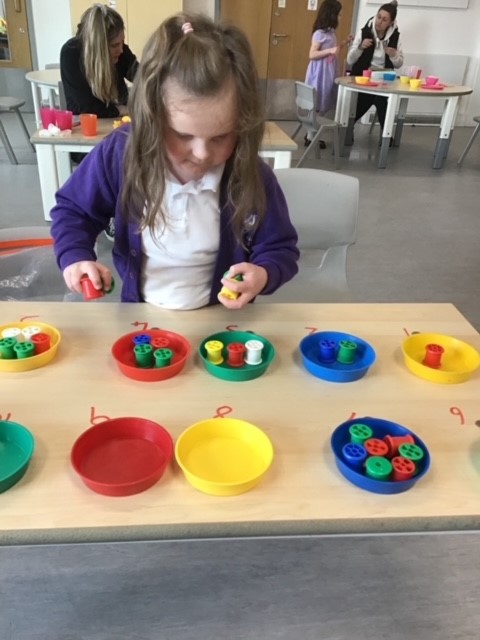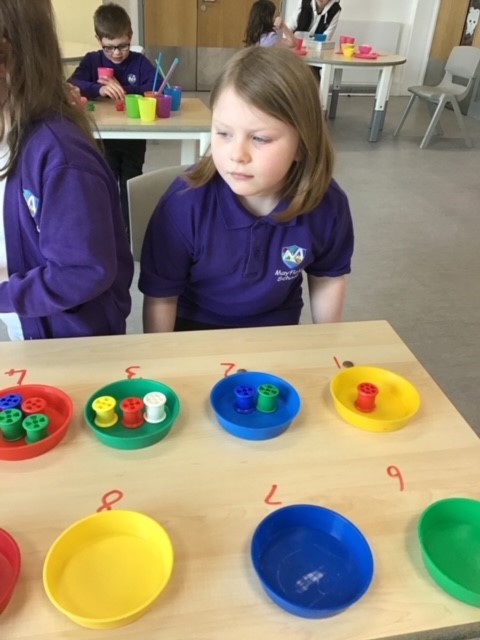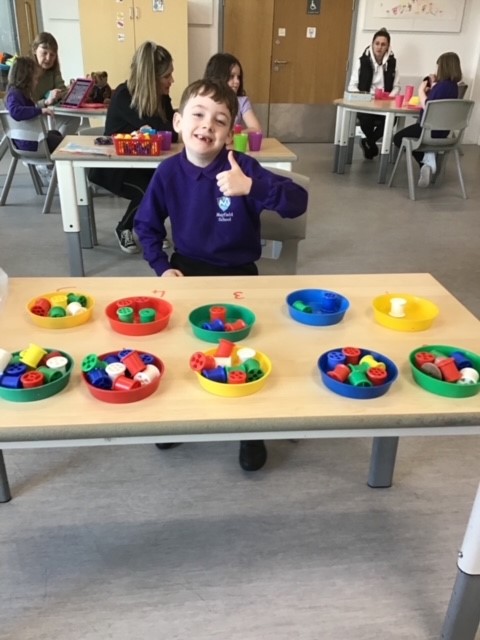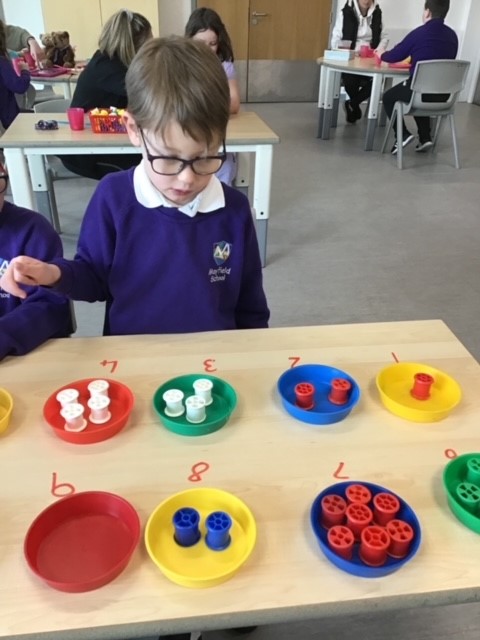Mathematic concepts are key for helping us to understand the world around us and at Mayfield School, we believe the importance of mathematic skills in everyday life should not be underestimated. The teaching of mathematics at our school, will introduce our pupils to a world of numbers, shapes, patterns and information. We want our pupils to develop the ability to solve problems, reason and think logically and our curriculum is designed to give pupils the opportunity to develop these skills and aims for a level of mastery in different concepts. This is why our mathematics curriculum revisits and reviews, prior knowledge and skills, and concepts are presented in multiple different ways. We want our curriculum to give them the opportunity to use their maths skills in a functional way and gain the skills to make sense of their world to help them to live as independent adults. Our intention is, that our pupils will develop the ability to use and understand mathematical concepts, which will open up daily living tasks such as using household appliances, running your own budget and finances, cooking, understanding time and developing an awareness of the digital world. This will ensure that our pupils are successful in the future.
Mathematics is incorporated into our school life every day in many forms, in keeping with our belief that learning doesn’t just happen in lessons, and that the skills our pupils learn should be functional, transferable and that pupils should be able to generalise their skills.
Mathematics for our pre-formal pupils can look very different as they are engaged in non-subject specific learning. Learning is based on the Equals pre-formal curriculum and Routes for Learning milestones. Pupils on this learning pathway are given the opportunity to develop early problem solving skills and early cognition skills. Opportunities are planned to allow pupils to develop an understanding of everyday mathematical language and how it relates to themselves and their own experiences. As with all the pre-formal pathways, the aim is that pupils can move from being passive observers towards being more active explorers.
Maths is very much an interconnected subject and our semi-formal curriculum allows pupils to make connections between basic numeracy skills and thinking and logic skills. The Semi-Formal maths curriculum is based on the Equals units “My Thinking and Problem Solving” and “My Independence” but also draws from White Rose Maths. We provide pupils with activities that expose them to reasoning and problem solving questions and immerse them in the everyday language of mathematics. We plan for the pupils to have a wide variety of mathematic experiences. Lessons on this curriculum pathway are designed to embed concrete maths concepts using hands on, practical activities. As pupils get older, they learn how these concepts can be used in their everyday life to achieve a greater level of independence as an adult.
In Key Stage 1 and 2, our formal learners follow the White Rose Maths Approach and schemes of work. Along with a philosophy of making maths fun and engaging, a white rose approach means we are working towards maths mastery. The pupils will work on developing basic maths principles before moving on to more complex tasks. We look to build a deeper understanding of topics and develop confidence in individual’s abilities and knowledge, with topics and skills often revisited and repeated to encourage fluency. Into Key Stage 3 and 4, our formal learners have the opportunity to study for formal entry-level qualifications in maths and follow the Ascentis framework.
Whichever curriculum pathways provides the implementation of numeracy, maths and personal finance, the impact we hope to see is universal. We want all our pupils to be active problem solvers and numerate in their worlds. We want them to make connections between the skills and concepts they learn in school and apply it with fluency to their lives outside of school and into adulthood.



